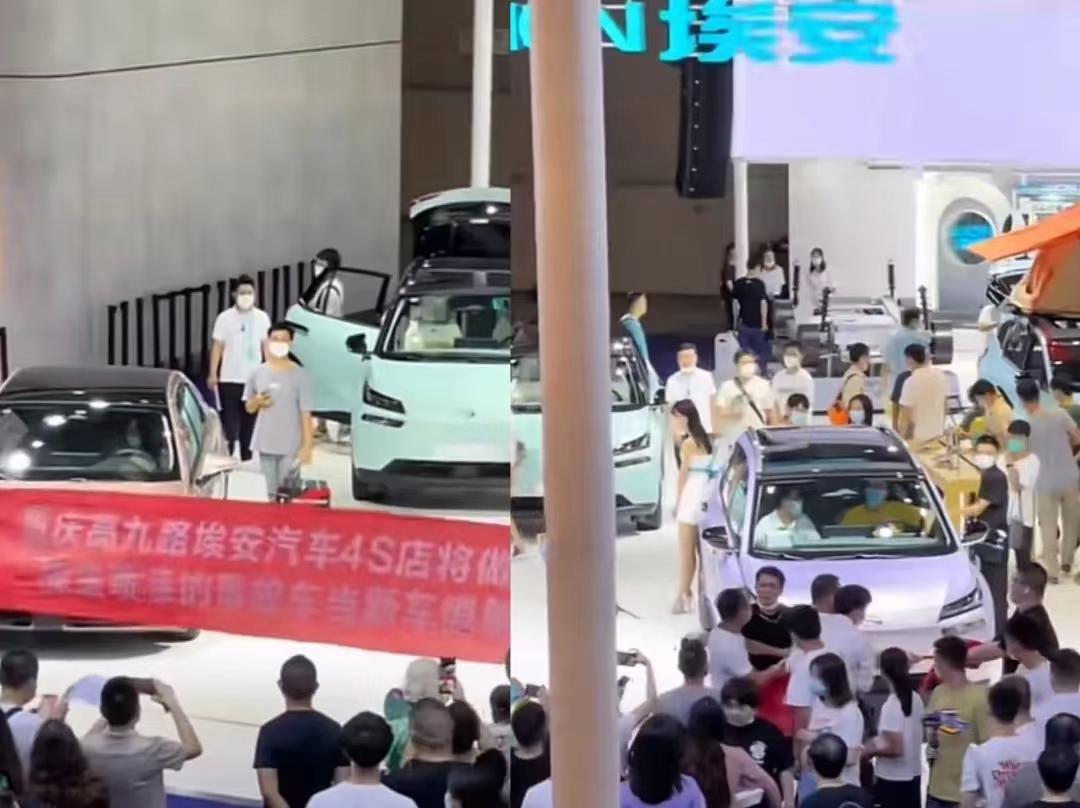In addition to Weibo, there is also WeChat
Please pay attention

WeChat public account
AutoBeta


2024-11-17 Update From: AutoBeta NAV: AutoBeta > News >
Share
AutoBeta(AutoBeta.net)10/03 Report--
On October 2nd Volvo released sales figures for September 2024 and the first nine months of this year. Volvo sold 62458 cars worldwide in September, up 1 per cent from a year earlier, according to the data. Among them, the global sales of new energy models (including pure electric and mixed models) was 30174, up 43% from the same period last year, accounting for 48.31% of the total sales, and the overall performance was good. Global cumulative sales in the first three quarters were 560922, up 10% from the same period last year. New energy models were 256749, up 33%.
Among the car segments, Volvo's world's best-selling model in September was the XC60, with 18096 vehicles, followed by XC40 and EX40, with total sales of 13930 and EX30 with 9610.

Subdivided into major markets, Volvo's European market sold 31276 vehicles in September, up 23% from the same period last year, including 20714 new energy models, up 52% from the same period last year. Total sales in the first three quarters of this year were 274419, up 31% from the same period last year. New energy models were 178645, up 43%. The US market sold 8518 vehicles in September, down 22 per cent from a year earlier, of which 3416 new energy models were sold, up 12 per cent from a year earlier, accounting for 40.1 per cent of total sales. Among the car segments, the highest sales were the compact luxury SUV model, the XC60, with 2807, followed by the medium-sized luxury SUV model XC90 and the small luxury SUV model, with 2633 and 1715 respectively. Cumulative sales in the first three quarters were 89547, down 3% from the same period last year, and 29762 new energy models, up 13% from the same period last year.

The Chinese market sold 12915 vehicles in September, down 16 per cent from a year earlier, while sales of new energy models rose 7 per cent to 1363, while sales in the first three quarters totaled 113037, down 9 per cent from the same period last year. Among them, sales of new energy models were 9982, down 10 per cent from the same period last year.
From the analysis of Volvo's global market sales, Volvo's global sales performance is still positive, but judging from the three major segments of the European market, the US market and the Chinese market, only the European market achieved year-on-year growth in September this year. The latter two fell by 22% and 16% respectively, and only 1% growth was achieved in other markets, which means that Volvo still needs to make more innovations, especially in new energy models. Take the Chinese market as an example, at present, Volvo's domestic models in China include S90, S60, XC60 and XC40, of which S90, S60 and XC60 introduce plug-in hybrid models on the basis of fuel vehicles, and XC40 introduces pure electric models on the basis of fuel vehicles. Volvo's top-selling model in China in August was the XC60, with 4723 vehicles, followed by the S60 and S90 with 2251 and 2186 vehicles, according to retail data.
In March 2021, Volvo announced that it would completely stop selling internal combustion engine cars, including hybrid models, by 2030 and switch to pure electric car production. The company's former CEO believes that internal combustion engine cars have no future. According to the original plan, Volvo plans to be fully electrified by 2030. However, on the 4th of last month, Volvo announced that it would abandon its transformation into an all-electric brand in 2030. Volvo explained that due to changes in market conditions and customer demand, Volvo decided to adjust its goal of selling 100% pure electric cars by 2030. It said the adjusted Volvo aims to make up 90-100 per cent of its global sales by 2030, including a combination of pure electric and plug-in hybrid vehicles, while the remaining 0-10 per cent will allow the sale of a small number of hybrid vehicles if necessary.
In addition, a few days ago, there were media reports that Volvo and dozens of industrial manufacturers called on the European Union to adhere to the plan to "stop selling new fuel cars from 2035." A total of 50 companies have called on the EU to maintain the policy, saying that the auto industry needs clear policies to invest and work to achieve EU goals, according to the report. "electrification is the biggest move the industry can take to reduce its carbon footprint," said Volvo CEO. "the 2035 target is critical to co-ordinating all stakeholders and ensuring European competitiveness."
As a well-known Swedish luxury car brand, Volvo still relies mainly on fuel vehicles for its current sales. Volvo's sales target is planned to grow by 15% this year, but due to macroeconomic and geopolitical uncertainties. Volvo has cut its full-year sales growth from 15 per cent to 12-15 per cent.
Welcome to subscribe to the WeChat public account "Automotive Industry Focus" to get the first-hand insider information on the automotive industry and talk about things in the automotive circle. Welcome to break the news! WeChat ID autoWechat
Views: 0
*The comments in the above article only represent the author's personal views and do not represent the views and positions of this website. If you have more insights, please feel free to contribute and share.











© 2024 AutoBeta.Net Tiger Media Company. All rights reserved.